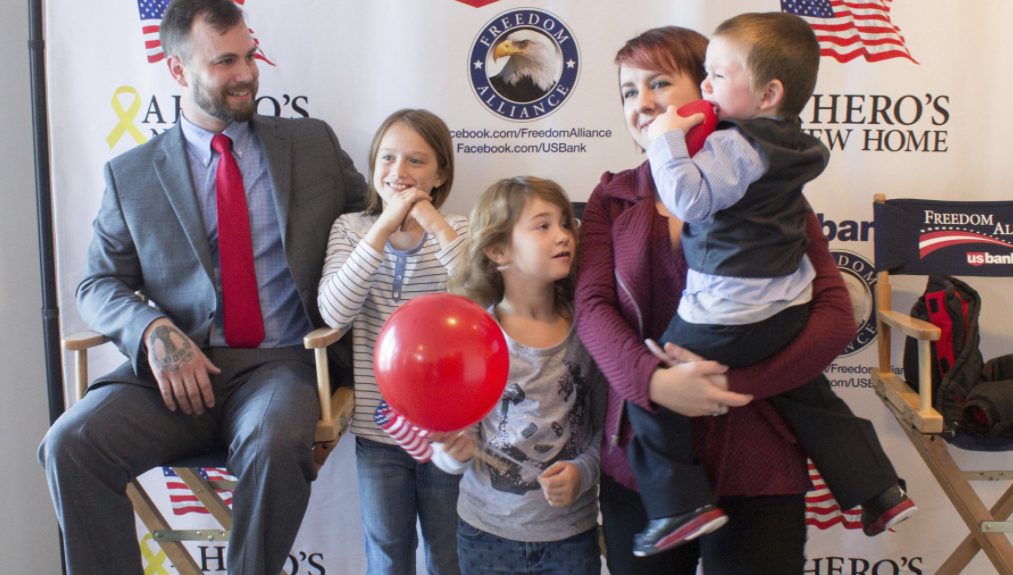A house in Minnesota was in foreclosing, and in the hands of an American bank faced with a decision.
They could do what’s normal to do in the financial industry: put the home on the market, and sell it. Or, they could they could do something entirely different. Something that will lose them money in the short term, but change the lives of an American family for generations to come in the long term.
Thankfully, they chose to do the latter. They presented the house, mortgage-free, to a medically-retired United States Army staff sergeant. A man who’d been deployed 12 times to the Middle East, who spent years and years at war in Iraq and Afghanistan and was the recipient of two Bronze Stars (in addition to other commendation medals). A family man who’s now the stay-at-home dad, who takes care of his and his wife’s three kids while she’s off pursuing a nursing degree. A man with dreams of one day becoming a lawyer and starting veterans courts near him in Forest Lake.
Veteran Marko Milosevic, 33, told the Star Tribune that upon being awarded the home (one that recently underwent more than $70,000-worth of renovations) his kids “haven’t stopped running in circles.”
When the former soldier — who suffers from nerve damage as well as post-traumatic stress disorder (PTSD) stemming from his combat experience — isn’t attending to his fatherly duties, he’s sending care package to active-duty military members, or volunteering his time with numerous veterans service organizations (VSOs).
Including the Milosevic’s, Virginia-based Freedom Alliance, who operates Heroes to Homeowners, has donated eight homes thus far.
Here’s how they choose the recipients, i.e. veterans (via the Star Tribune):
Successful applicants must have been wounded in Iraq or Afghanistan, and the new home must be their primary residence. They should have a good service record and pass a background check.
After in-person interviews, Freedom Alliance selects the applicant and hands off the process to U.S. Bank, which handles the homeowner and mortgage portions.
Kilgannon said that Milosevic was a “natural fit in terms of … someone who has done so much in their career.”
“What’s important for the public to know is that when service members return home, their problems are not over,” Kilgannon said. They often need to relearn some basic skills, especially if they’re trying to recover from a mental or physical injury.
Milosevic retired from the service in 2014 after enlisting as an Airborne Ranger (with his mother’s okay) at the age of 17.




































